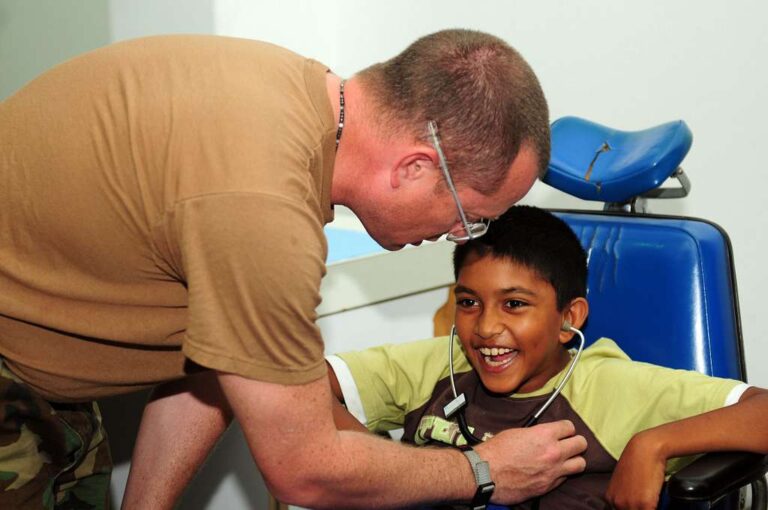How Pediatric Neurologists Monitor Neurological Conditions in Children

When a child shows signs of a neurological condition, parents are often filled with questions and worry. Pediatric neurologists play a key role in bringing clarity to these concerns. With specialized training in both child development and the nervous system, these physicians employ a combination of observation, diagnostic tools, and developmental tracking to detect a brain injury and assess how a child’s brain and nervous system are functioning. Here are the methods they use to monitor brain functions in children:
1. Clinical Assessments
Clinical assessments are pivotal in pediatric neurology. They involve a thorough neurological examination where neurologists evaluate a child’s mental status, motor function, sensory perception, reflexes, and balance. Observing younger children’s interactions with their surroundings and caregivers is particularly helpful, as it often reveals valuable details about their development.
Assessing reflexes provides valuable insights into the functionality and health of the nervous system. Pediatric neurologists analyze movement patterns, responses to stimuli, and coordination to detect potential concerns early on. These clinical evaluations often serve as the foundation for further testing and monitoring.
2. Diagnostic Tests
Neurologists enhance their evaluations by utilizing advanced diagnostic tools to gain a comprehensive understanding of brain activity and structure. Some of the fundamental diagnostic tests include:
- Electroencephalogram (EEG): This measures brainwave activity, often used to detect seizure disorders, including epilepsy. The data is particularly key in analyzing abnormal patterns linked to neurological disorders.
- Magnetic Resonance Imaging (MRI) and Computed Tomography (CT): These imaging techniques are helpful in visualizing detailed brain structures, making them excellent for identifying abnormalities, such as tumors or signs of brain injury.
- Lumbar Puncture: By examining cerebrospinal fluid, neurologists can uncover infections or unusual biomarkers associated with neurological disorders. This test is often recommended when there’s a suspicion of meningitis or significant inflammation within the brain.
- Electromyography (EMG) and Nerve Conduction Studies: These tests assess nerve and muscle health. They are also key in diagnosing muscular weakness or nerve-related conditions. The data retrieved directly impacts the course of treatment, aiding precision in addressing the problem.
Through these diagnostic tests, pediatric neurologists establish detailed insights into brain trauma, cognitive impact, or neurological conditions that could affect a child’s development.
3. Ongoing Monitoring
Monitoring a child’s neurological health extends beyond initial assessments. Neurological conditions can evolve as a child grows, requiring vigilant, long-term observation. Pediatric neurologists systematically track development to adjust treatment plans as needed.
Effective monitoring incorporates the evaluation of medication efficacy, tracking behavioral or cognitive changes, and identifying any new symptoms. For children recovering from brain injury, progress in motor skills, speech, and cognition is carefully observed to measure improvements or setbacks. Developmental milestones are closely reviewed to detect delays early, particularly in cases of neurological disorders that might impact motor or communication abilities.
4. Developing Treatment Plans
Once diagnoses are confirmed, pediatric neurologists create personalized treatment plans to address identified conditions effectively. These plans integrate medications, therapies, and sometimes surgical interventions, depending on the severity and type of diagnosis.
Physical, speech, or occupational therapies often supplement the treatment process. They are structured to address deficits and support the child in meeting developmental milestones. Neurologists may also prescribe medications tailored to conditions such as epilepsy or attention issues, making sure dosage adjustments are based on monitoring outcomes.
Collaboration across fields of healthcare is also key. Neurologists work closely with pediatricians, therapists, neurosurgeons, and educators to deliver comprehensive care. This integrated approach makes sure a child’s physical, emotional, and developmental needs are addressed holistically.
Learn More About Brain Injury Treatment
Understanding how pediatric neurologists monitor neurological conditions can offer caregivers valuable insights into their child’s care plan. From clinical assessments to advanced diagnostic tools, the multifaceted approach promotes effective management of neurological health. To explore treatment options for conditions related to brain injury or other neurological disorders in children, consult with a pediatric neurologist today.
- What to Expect When Visiting a Foot and Ankle Specialist
- Causes of PTSD
- The Link Between Plantar Fasciitis and Weight Gain: What You Need to Know
- How Pet Ownership Can Positively Impact Life with Fibromyalgia
- The Importance of Stretching and Flexibility in Sports Medicine
Dr. Emma Green is a health and wellness expert with over 10 years of experience in nutrition and fitness. Passionate about helping others live their healthiest lives, Dr. Green shares practical advice on wellness, nutrition, and sustainable living through LivingSpristine.






